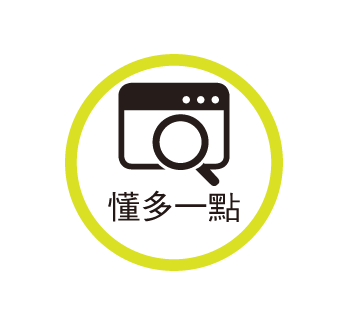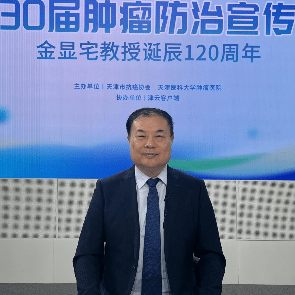[Traditional Chinese medicine goes beyond the line]From clinical treatment to postoperative conditioning, Chinese medicine is more powerful in assisting cancer treatment
[ad_1]
Text: He Jianxing Organizer: Liang Yingxiu
(Kuala Lumpur News) In the face of cancer, the second leading cause of death in the world and the second leading health killer in Malaysia, only by combining professional opinions from different medical fields can we give more precise treatment, which includes differences from Western medicine concepts Chinese medicine.
The world’s three authoritative cancer research institutions, namely Christie Hospital in Manchester (UK), MD Anderson Cancer Center in the United States, and Mayo Clinic (formerly Mayo Medical Center) as examples, acupuncture and moxibustion within the scope of traditional Chinese medicine The use of massage, massage and manipulation is already part of cancer treatment.
In China, Taiwan, Hong Kong and other areas where Chinese are the majority, it is common to treat cancer with traditional Chinese and Western medicine. In Japan, it is even common for Western medicine to treat patients with acupuncture or Chinese herbal medicine after receiving training in Chinese medicine.
Discovering Anticancer Drugs from Chinese Herbal Medicine
Dr. Lim Ren Jye, an oncology consultant of Chinese and Western medicine, pointed out that looking at the treatment of cancer overseas and even in government hospitals in our country, Chinese medicine has become one of the active participating units, from participating in research to pre-cancer, to clinical treatment, and surgical treatment. Post-conditioning and even improving the quality of life, Chinese medicine plays different roles at different stages.
“Taking drug research as an example, more and more research units are now focusing on discovering anti-cancer or cancer-treating drugs from Chinese herbal medicines. The most typical example is the extraction of the active ingredient paclitaxel from the Chinese yew, and the use of paclitaxel in Chemotherapy drugs for ovarian and breast cancer.”
In addition, another school of practice is to make continuous efforts to prove the efficacy and safety of traditional Chinese medicine, and incorporate it into formal treatment, which includes the three major cancer research authorities mentioned above.
He said that he worked in the National Cancer Center before, and now he has the opportunity to conduct different seminars with different authoritative overseas cancer treatment units. The participating doctors or researchers are top figures in cancer treatment, and these leaders Their attitude towards TCM is very open-minded. They believe that the inability to use scientific methods to understand how TCM treats cancer at this stage does not mean that scientific methods cannot be used to prove it in the future. It is just that the current research methods are not good enough and a more suitable method must be found That’s all, for them, the curative effect and safety of Chinese medicine are what they care about. “
Restricted by the law, Chinese medicine practitioners did not make rounds
He said that after completing the rounds, everyone will discuss the patient’s condition together. For example, when one of the patients has unrelieved pain or cramps after chemotherapy, and the anesthesiologist or oncologist has no better solution. Method, Chinese medicine can intervene, including giving acupuncture or appropriate Chinese herbal medicine, so as to improve the patient’s pain and quality of life, and then continue the course of treatment by other doctors.
He also said that in the field of private hospitals in Malaysia, Chinese medicine practitioners are limited by laws and cannot participate in ward rounds. Therefore, what can be done is to strengthen cooperation with other Western medicine departments involved in cancer treatment, such as oncology, surgeons and even diet therapists. Keep in close contact and discuss the situation from time to time. Once the patient’s situation occurs, they can maintain a seamless combination with each other, which fully demonstrates the tacit understanding of the team.
Precancerous Lesion Intervention
Chinese medicine can help reverse the disease
In cancer treatment, can Chinese medicine only intervene in the treatment after surgery?
No, Chinese medicine has played a pivotal role in different stages of cancer in recent years, from precancerous lesions, preoperative, during, postoperative, and even palliative care.
“Taking the precancerous lesions of gastric cancer as an example, chronic atrophic gastritis is regarded as the precursor of gastric cancer. If it can be reversed, gastric cancer can be avoided. In traditional Chinese medicine, Tongjiang is the main prescription, which has antibacterial properties. , repair and promote gastrointestinal motility, etc., so as to intervene in precancerous lesions, and the research team at Nanjing University of Traditional Chinese Medicine in China has detailed literature data in this regard.”
Improving the patient’s physical condition before surgery
Lin Renji revealed that before the operation, it is to improve the overall physical fitness of the patient and help the weak patient to be able to cope with the challenges faced by the operation. The intervention after the operation is to improve the patient’s blood loss, reduce nausea, stop vomiting, and analgesia. and wound healing time.
It is noteworthy that in fact, some government hospitals in my country have adopted local anesthesia combined with acupuncture (electroacupuncture) to achieve painless cases when performing thyroid cancer resection operations. .
“In addition, in terms of postoperative conditioning, TCM surgical intervention has a positive effect. Taking the elderly with colorectal cancer as an example, their colonic motility was already poor before surgery, and it took longer to recover gastrointestinal motility after surgery. Studies have shown that acupuncture Or after moxibustion is applied to specific acupoints, it is expected to shorten the hospital stay, which can reduce the risk of bacterial or viral infection during hospitalization, and reduce medical expenses.”
He emphasized that another feature of Chinese medicine is that it can be targeted and individualized according to the treatment plan used by the oncologist and the physical changes of the patient after receiving different treatments such as radiotherapy, chemotherapy, targeted and immunotherapy for different cancer patients. Treatment.

Moxibustion enhances white blood cells
Improve myelosuppression after chemotherapy
Generally speaking, in order to avoid possible drug interactions between chemotherapy drugs and Chinese herbal medicines, Chinese medicine will suspend taking Chinese herbal medicines on the day of chemotherapy and one day before and after the patient undergoes chemotherapy, and give targeted conditioning at other times.
Through different studies over the years, it has been found that the use of Chinese herbal medicine in the treatment of cancer, coupled with regular blood tests, is relatively safe.
Lin Renji pointed out that Chinese herbal medicine can also improve bone marrow suppression such as anemia, thrombocytopenia or leukopenia that may occur in patients after chemotherapy.
“Earlier in a British hospital, moxibustion was found to increase white blood cells after Western medicine chemotherapy. The hospital therefore actively carried out research. For medical units that have been using Chinese and Western medicine for many years, such as Chinese hospitals or the National Cancer Center of Malaysia etc., also found that moxibustion treatment has a positive effect on improving myelosuppression.”
Filling the gap in the cancer treatment process
“Many times after chemotherapy, patients will have some unknown symptoms, but no one can consult them. The common and unresolved symptoms are joint stiffness and limited mobility. At this time, Chinese medicine gives some manipulation or acupuncture at the right time to improve the surgical scar restriction or treatment. While treating the residual symptoms, it also improves their quality of life and truly fills the vacancy in the treatment of cancer.”
Finally, Chinese medicine has also played a positive role in preventing cancer metastasis and recurrence. Taking China and Taiwan as examples, many related studies have found that after patients are discharged from the hospital, continuing to give traditional Chinese medicine treatment can significantly improve the rate of cancer recurrence or metastasis.
“However, in Malaysia, doctors must consider that traditional Chinese medicine has not been included in the insurance coverage so far. On the premise of not increasing the financial burden of the patient, the doctor will determine the period of time he must continue to take traditional Chinese medicine according to the patient’s disease type and stage. Generally, it takes 2 to 3 years, and the longest is 5 years.”
Thanks to continuous research and scientific progress, TCM has made more breakthroughs in treatment. Taking cancer as an example, studies have found that TCM uses old prescriptions to improve the quality of life of patients, and it also has good results.
90% of patients can accept acupuncture
Not only that, but now there are extremely advanced testing instruments in Chinese medicine, including checking the patient’s tongue coating and pulse diagnosis, and assessing the patient’s physique and health problems through an overall inspection. With the aid of the instrument and a detailed diagnosis by the doctor, you can clearly grasp the Patients’ health data, which, when integrated, can also provide researchers with a better grasp of public health trends.
Can Malaysians, especially compatriots of friendly ethnic groups, accept the combination of traditional Chinese and Western medicine for cancer treatment? He said that taking the National Cancer Center as an example, nearly 90% of Malay patients can receive acupuncture, and the acceptance of Chinese herbal medicine is also very high, and the patients in private hospitals are now contacted.
“In addition to Malay and Indian compatriots, even foreigners such as Thais or Indonesians can receive different types of Chinese medicine treatment. In fact, Chinese medicine is a part of medicine, and its effectiveness and safety are the most important. Heavy.”
[ad_2]
Source link

![[Love Wants Sexual Happiness Series 358]Find the culprit and overcome psychogenic erectile dysfunction. Don’t let pressure affect your sexual happiness.](https://chinathenews.com/wp-content/uploads/2024/04/171111-780x420.jpg)

![[Wanqingyi Care]My health, my rights, customized medical methods in the last stage of life](https://chinathenews.com/wp-content/uploads/2024/04/ZZ1-100-780x420.jpg)
![[Kidney Transplantation Special Topic]The survival rate of transplanted kidneys is high without dialysis treatment three times a week](https://chinathenews.com/wp-content/uploads/2024/04/1311-780x420.jpg)



